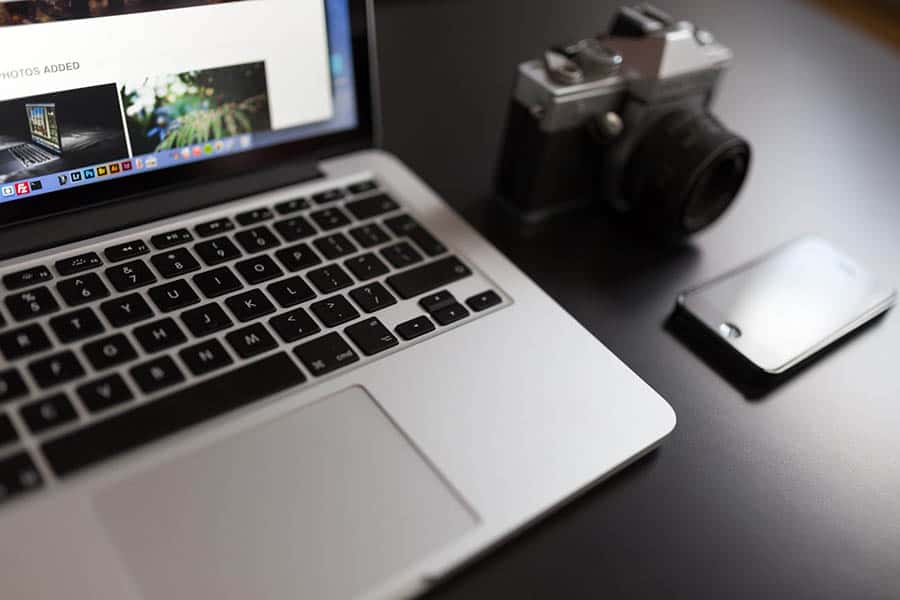„I got the picture from the web, so I can use if freely, can’t I?”
The sentence above can be heard a lot as a defense, when someone is confronted with the fact that one uses photos, pictures download from the web on its webpage, Facebook page, blog or in promotional, marketing materials without the author’s permission or paying royalty. What is the truth with these pictures?
There are still a lot of misperceptions in the public about the commercial and private use of pictures and photos from the internet, despite that the copyright awareness is growing in the users. A not rare excuse or in some cases serious misconception, that: “there wasn’t © marking/logo/name of the photographer/watermark on it”, “I found it on the internet”, “Google got it”, “someone posted it on the social media”, “I do not earn any money with the photo, I just need it for my webpage, blog, social page”, “if it is on the net, it is public domain”. My personal favorite is the “everyone does it” or “I do not harm anybody with it”, moreover “it is good for the author, because I promote him” reasoning. Beside these there is the “nothing will happen if I upload it” and the “they did not tell me/I did not know, that it is not allowed” excuse. The number of misperceptions, excuses is limitless like the fact that we do not see copyrights in the internet environment as a value in the common sense, let alone not something we would pay for.
The reasoning above are misperceptions, because there is no difference in case of using a photo, picture whether it is used on the internet, in the press, on a blog, on a webpage, in a promotion or in a book. The source of the pictures, photos (search engine, view-finder, photo data base, social media, paper photo) also does not make them freely usable.
By contrast, the basic concept is that every photo and picture (whether it is graphic, or visual work, still image created with any technique on a computer) according to the copyright law qualifies as a work with individualistic and original nature, and for any kind of usage, the author’s permission and the payment of royalty is needed. There are exceptions from this rule; these are the cases of free usage.
The free usage in case of private copying only applies when it is done as a private person for own account, meaning downloading for using it at work, or downloading for commercial, business purposes are subject to royalty fees. Likewise, separate permission must be asked, if we download a picture/photo as a private person at home for our own purpose, but we earn money directly/indirectly, because we spare costs with that, or earn income.
The free usage cannot be applied to the cases, when we load back the downloaded picture on to the internet, post it to our social media page, to our private, or business blog available on the internet, even as a illustration, accompanying picture or as a part of the webpage design. Uploading to the internet, making it available, displaying it on the web does not apply as copying in the Hungarian copyright law (as the law says: reproduction) , but recording for public, and neither the Hungarian, nor the EU copyright law contains exception of free use from that.
All of this means, that for the usage on the internet permission and royalty are always needed, regardless if it is done as a private person, for private purpose, or as a company for professional, business purposes. A picture/photo does not become a public domain, just because someone has uploaded it to the internet.
Based on all of these, these pictures can only be used, if we acquire the permission from the copyright holder for the given type of use, and if the author asks for royalty, we pay it; or if the author explicitly stated that his art can be used without permission and royalty. The latter is difficult to check, but in the most view-finder service , there is an option, that only those photos, pictures are shown as a result of the search, where the copyright holder preauthorized the free usage for any purpose, unlimitedly and not exclusively.
If we want to decorate our webpage, blog, social media page, promotional or marketing material, with legitimate pictures/photos, there are numerous ways to do that legitimately, from the free, through the solutions costing a few penny, up to the expensive, unique picture-making.:
- we make photos, pictures on our own
- we only use pictures, where we made sure that the author allowed the gratis and free use of them (see the above mentioned options of view-finders);
- we choose pictures from the online data-base of online stock-photo companies, where the company ensured the acquisition of the copyrights, and usually there are detailed license terms, which guides us that the pictures in the free database can be used for what purpose and with which kind of limits
- we choose picture from the pay online date-base of stock-photo companies, where the company also ensured the acquisition of the copyright permission;
- we assign a photographer, artist to make us pictures, photos uniquely, we acquire the rights with a license agreement, and we pay for it.
If we successfully acquired the picture legitimately, that we have to take care to use it legitimately, so to not to harm the authors’ rights. According to Hungarian law the name of the author and the source of the picture (for example the stock-photo company, where we acquired it) must be always indicated on the artwork (in our case, on the photo/picture, or under/next to it) and in the communication regarding it, furthermore, if we adapt the artwork, also on the new artwork arising from it.
We also have to take care, that the author got the right, so his artwork cannot be used in such a context or with such a modification, which would harm the author’s honour, reputation, or fame. Typically this is use in connection with pornographic or adult content, but it can be the use for political purpose. It is also not possible, even in case of permission and payment of royalty, to use the pictures, photos in a way, that would harm other’s right, and we cannot register these legitimately acquired pictures, photos under own name, as own trademark or own logo.
If we are not sure of the photo or picture downloaded from the internet is legitimate, than it is better to not to use it, because, despite the common belief, the copyright breach can have legal consequences: serious civil liability proceedings, but in case of business usage it can qualify as a crime, which means initiating a criminal procedure and a lot of inconveniences.
In frame: the case of free usage: it is not needed to ask permission and pay royalty to the copyright holder, if a person makes copy of a photo, picture for its own purpose. It can happen with scanning, the copy can be recorded on a computer, CD, pendrive, in the memory of a telephone or on other electronic media. The cost of this type of free usage is the so called blank cassette or blank media royalty, paid upon the purchase of the electronic, suitable for copying media, included in its price. This solution was criticized a lot, because the fee must be paid, regardless if there will be any artwork stored in the media or not. This kind of copying of owns purpose is only free if it does not even serve indirectly the intention of producing or increasing income, it does not harm the ordinary usage of the artwork and does not damage unreasonably the author’s legal interest and does not tend for a purpose not in line with the free usage.





